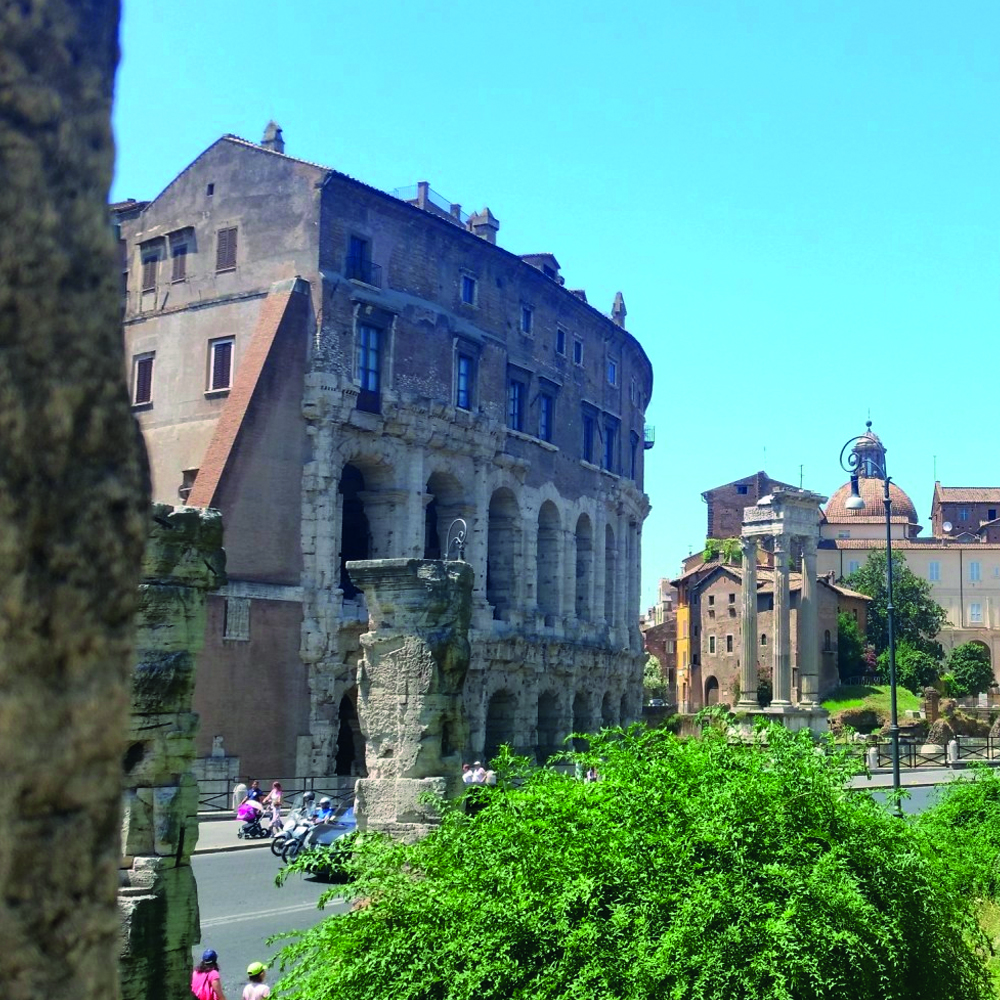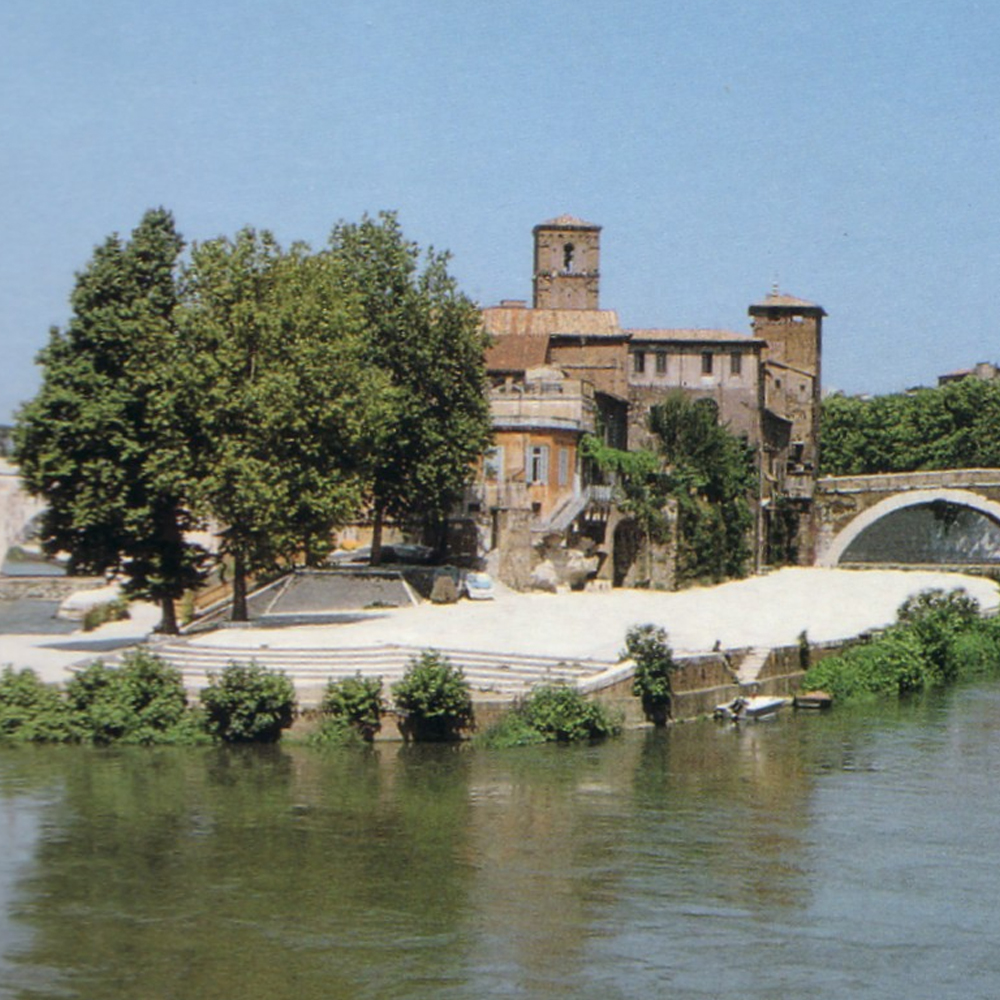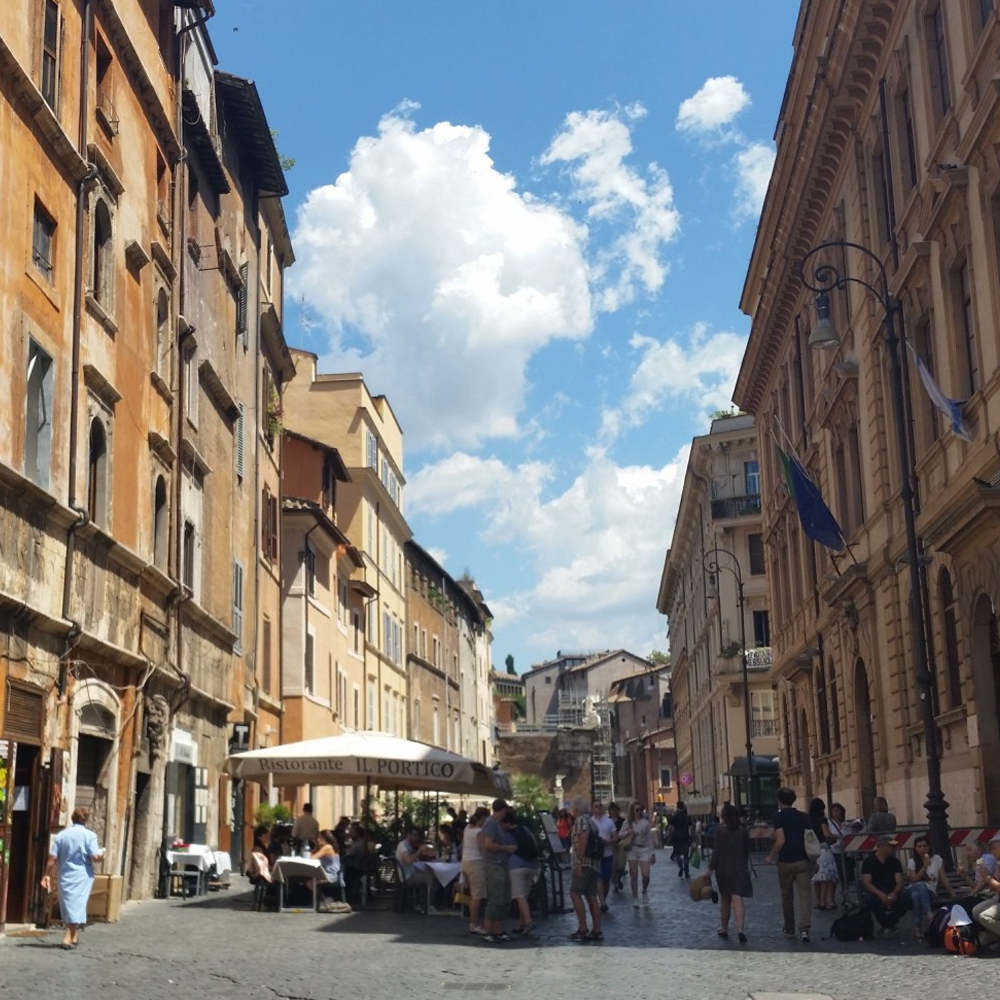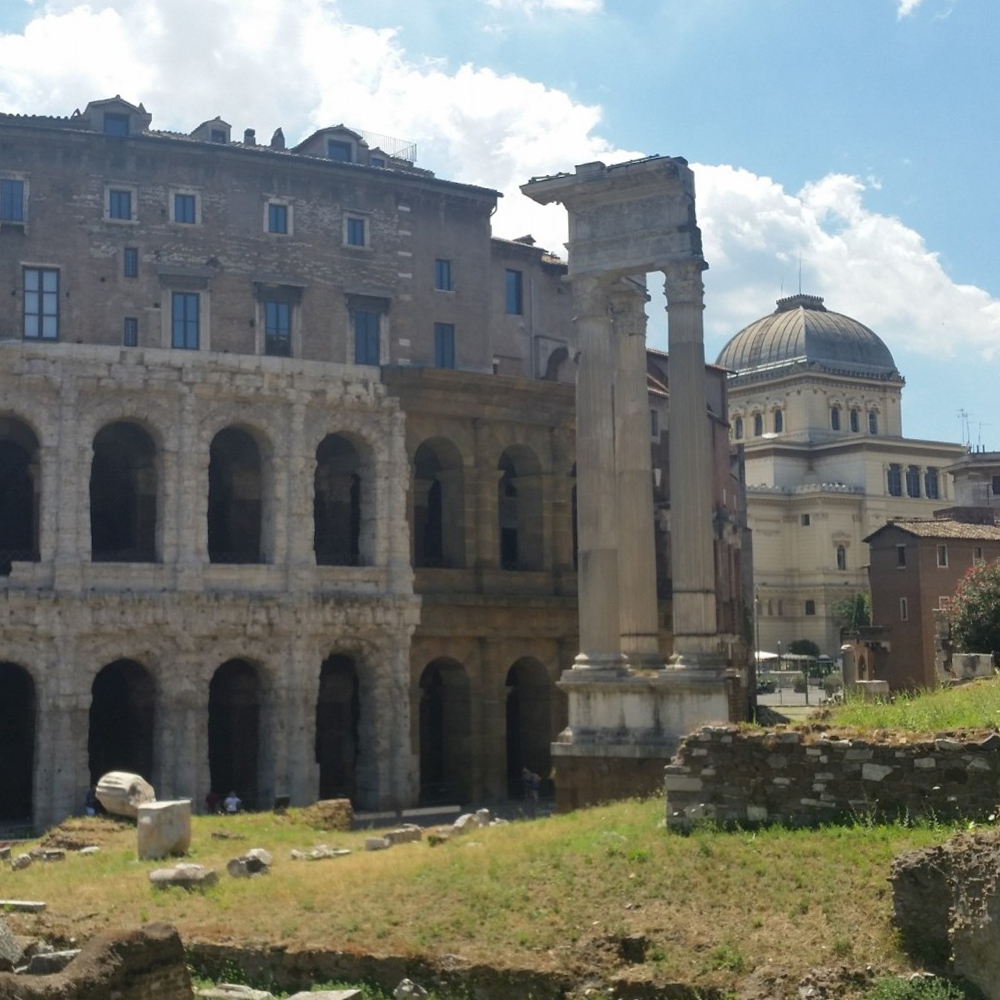Trastevere & Jewish Ghetto
Touring the heart of Rome and walking around the quintessentially authentic neighborhoods of Trastevere with its little alleys and the Ghetto, along with city-favorite Campo de’ Fiori fresh market and the Tiber with its island.

It doesn’t get any more Roman than a placid morning stroll around Trastevere, one of the most traditional neighborhoods in the capital. The narrow alleys, the busy bakeries and forni, the old ladies sitting and chatting on theirs chairs outside. We’ll get there after starting our tour in Piazza Farnese and Campo de’ Fiori – home to the famous daily produce market. In Trastevere we’ll visit the church of Santa Maria in Trastevere, one of the oldest in town, and the first built in tribute to the Virgin Mary.
Crossing the river we’ll step foot onto the Tiber Island, a sliver of land hosting the ruins of an ancient Roman bridge, Ponte Rotto, as well as a temple dedicated to the god of medicine, Aesculapios (quite appropriately, this tiny island is perhaps best known today for its fully functional hospital founded in 1584). The Ghetto – where Roman Jews were ordered to move by the Pope in 1555 – is our final stop, to see the ruins of the Theater of Marcellus and Porticus Octaviae, but also to explore an area that even today represents a fiercely proud bastion of Jewish culture, and home to some of the finest food traditions in Rome.
Duration
3 hours
Price (1 to 4 people)
€ 250 (prices may vary depending on season)
Includes
Piazza Campo de’ Fiori – Santa Maria in Trastevere – Isola Tiberina – Teatro di Marcello – Portico d’Ottavia
You may need
Comfortable shoes and a bottle of water, a shawl or a scarf to cover the shoulders when entering a church.
It doesn’t get any more Roman than a placid morning stroll around Trastevere, one of the most traditional neighborhoods in the capital. The narrow alleys, the busy bakeries and forni, the old ladies sitting and chatting on theirs chairs outside. We’ll get there after starting our tour in Piazza Farnese and Campo de’ Fiori – home to the famous daily produce market. In Trastevere we’ll visit the church of Santa Maria in Trastevere, one of the oldest in town, and the first built in tribute to the Virgin Mary.
Crossing the river we’ll step foot onto the Tiber Island, a sliver of land hosting the ruins of an ancient Roman bridge, Ponte Rotto, as well as a temple dedicated to the god of medicine, Aesculapios (quite appropriately, this tiny island is perhaps best known today for its fully functional hospital founded in 1584). The Ghetto – where Roman Jews were ordered to move by the Pope in 1555 – is our final stop, to see the ruins of the Theater of Marcellus and Porticus Octaviae, but also to explore an area that even today represents a fiercely proud bastion of Jewish culture, and home to some of the finest food traditions in Rome.




